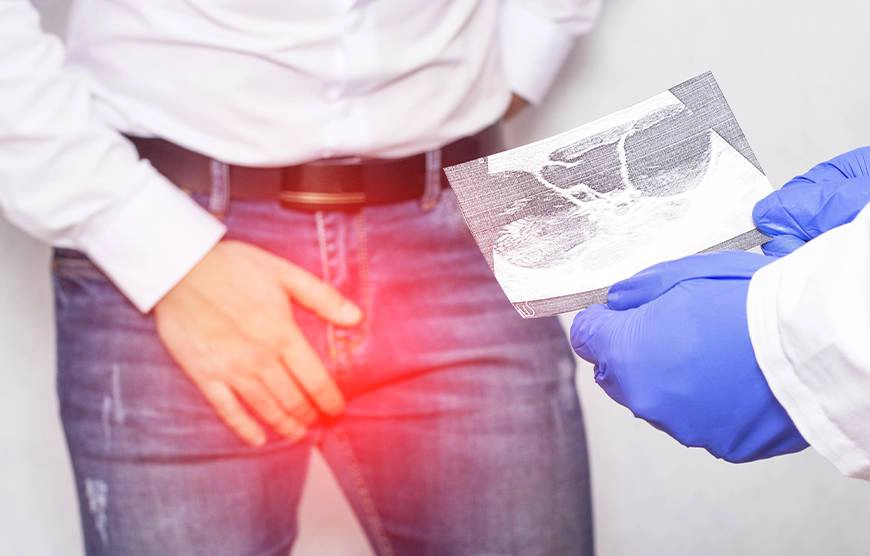
What is a Hernia?
A hernia is a condition in which an internal organ in the abdomen and protrudes through a weakness of the
abdominal wall muscle in the groin.
It is caused by a combination of muscle weakness and excessive pressure.
Improper lifting of heavy loads, chronic constipation, persistent coughing or sneezing, obesity, smoking
and overall poor nutrition can all contribute to hernias. Age, pregnancy, injuries and surgery may result
in muscle weakness, which, in turn, leads to hernias.
Types of Hernias
There are several types of hernias, the most common of which are:
Inguinal hernia
Accounting for around 70% of all hernias, inguinal hernias occur when the intestine or bladder protrudes through the lower abdominal wall or the inguinal canal in the groin, which houses the spermatic cord that supports the testicles (men) and the ligament that keeps the uterus in place (women). This type is more common in men than women.
Femoral hernia
Similar to inguinal hernias, femoral hernias occur in the groin, but these more commonly affect women, especially those who are pregnant or obese. This type of hernia happens when the intestine pushes out of the lower abdominal wall and into the femoral canal in the upper thigh.
Incisional hernia
This occurs when the intestine protrudes out of the abdominal wall via a previous incision or weakened tissues and muscles in an old surgical site.
Hernia Repair Surgery (Herniorrhaphy)
Hernia repair should be considered once diagnosed as hernias will all slowly enlarge, with an
increasing the risk of bowel or fat becoming entangled within the hernia. This results in pain and
a lump, which can eventually cut off the blood supply to the bowel or fat within the hernia.
Each hernia repair is different and tailored the situation but can be as little as an outpatient
surgery with no overnight stay or as large as a week or longer stay in hospital. The operation may
be performed as an “open” or “keyhole” (laparoscopic) hernia surgery depending on the circumstance.
Smaller hernias are relatively simple to repair. Repair involves moving the contents of the hernia
back to where it would normally lie, and closing the hernia orifice (hole). This can be done with
sutures (stitches), but hernias are now also repaired with ‘mesh’ to cover the gap in the muscles
of the abdominal wall. This mesh is then used by the damaged or weakened tissues and muscles as a
support during regrowth The mesh repair is much less likely to break down and so the hernia is
less likely to recur. The larger the hernias become, the more complicated the surgery (and hence recovery), which is another reason to attempt earlier repair where possible.


Risks of Hernia Surgery
As with most surgical procedures, hernia repair comes with possible risks. These include:
- Post operative pain and swelling
- Mesh pain and infection
- Bleeding or infection at the surgical site
- Rarely, recurrence of hernia
Post-Surgical Care Following Hernia Repair
For the first few days following hernia repair, pain and swelling around the surgical site are expected.
These can be managed with simple rest or medicines, and typically go away within a week.
Light exercises and sexual activities may be resumed after one or two weeks. After two weeks, many
patients will also able to go back to work and resume their regular routines. However, patients should
refrain from strenuous activities and heavy lifting for at least 4 to 6 weeks after the hernia treatment.






